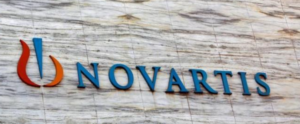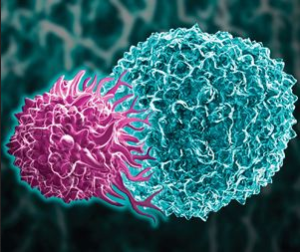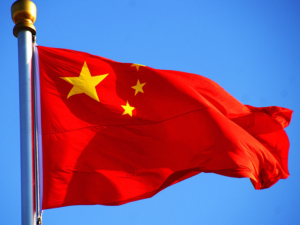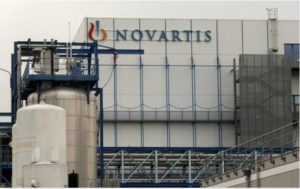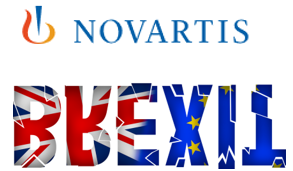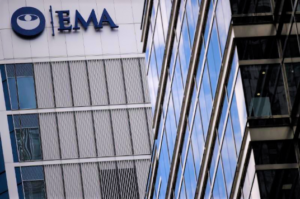- Exclusive: Novartis pitches discounts on pricey gene therapy for deadly muscle disorder (reuters.com)
Novartis AG is offering price discounts in negotiations with U.S. health insurers on its gene therapy for spinal muscular atrophy, a treatment that could cost more than a million dollars, but the gesture comes with strings attached...The Swiss drugmaker wants insurers to commit to coverage for patients identified with the rare and often deadly disease...Novartis also seeks their support for widespread screening to identify newborns with SMA, and to ensure quick authorization for the gene therapy, with the aim of starting treatment within two weeks of diagnosis...The U.S. Food and Drug Administration is due to decide this month on approval for Novartis’ Zolgensma. Novartis, which has made a huge bet on gene therapy for future growth, says the one-time treatment could be a cure for SMA and is pushing for a price in the range of $1.5 million to $5 million. That would make Zolgensma the most expensive new therapy to date...READ MORE
- UK doctors win battle with drug giants over cheaper eye medicine (reuters.com)
Drug giants Novartis, Bayer and Roche on Friday lost a bid to stop British doctors from recommending a cheaper drug option for people with an eye disease that causes blindness, the High Court in London ruled...A drug industry group said the decision was “extraordinary” and was bad news for future regulatory cooperation between Britain and the European Union after Britain’s exit from the bloc...The companies had sought to block doctors from 12 health groups in the north of England from making Roche’s cancer therapy Avastin the preferred option for wet age-related macular degeneration, even though it is not licensed for this use...Avastin works similarly to Bayer’s Eylea and Roche’s and Novartis’s Lucentis, but those drugs were made specifically for the eye...“Treating clinicians can lawfully choose Avastin for opthalmic use on grounds of cost,” according to the ruling. It added that NICE, the UK’s drug cost effectiveness agency, had concluded that using Avastin for AMD was safe...
- Swiss, German drugmakers join U.S. price freeze (reuters.com)
European drugmakers Roche, Bayer and Merck KGaA became the latest companies to freeze prices in the United States for the rest of 2018 following criticism by President Donald Trump over the cost of medicine...Roche did boost U.S. prices for nine key drugs by an average of 3 percent on July 1, but said it would hold off additional increases as discussions with the Trump administration continue over a longer-term solution to containing healthcare costs...The European announcements on Friday follow similar moves from Novartis, Pfizer and U.S. drugmaker Merck.
- Merck and Novartis gender bias suits draw renewed attention, and New York is taking action (fiercepharma.com)
As the #MeToo movement puts workplace sexual harassment at the front, Merck & Co. and Novartis, two of the largest pharma companies, find themselves entangled in a different kind of gender problem: alleged pregnancy discrimination...Merck for years has been embroiled in a lawsuit that accused it of discriminating against female sales reps in promotions and pay...The Merck suit...brought...by Kelli Smith, a former...saleswoman, alleged that Merck discriminated against female sales reps and against pregnant women in its decision on promotions and pay...Smith was demoted in March 2011, after she returned from maternity leave, and was put in the lowest-paid sales rep tier...Merck isn’t the only pharma company that has been under fire with gender-bias complaints. Novartis in 2010 agreed to pay $175 million to settle a similar suit. Christine Macarelli, a former...saleswoman, said in that case that her supervisor told her “women who find themselves in my position—single, unmarried—should consider an abortion,”...Now both Merck and Novartis are under scrutiny from the New York state government’s Division of Human Rights. The agency just sent the companies letters requesting information about the discrimination claims. Because New York has a law requiring employers to accommodate pregnant workers, the state could seek damages though administrative complaints, according to the NYT...
- CMS unveils CAR-T proposal, with emphasis on patient outcomes (biopharmadive.com)
Under a proposal...Medicare would cover CAR-T cell therapies through a Centers for Medicare and Medicaid Services pathway known as Coverage with Evidence Development...The proposal holds a mix of provisions, including that patients must be monitored for at least two years post-treatment. Hospitals administering CAR-T therapy, whether through inpatient or outpatient care, must participate in a CMS-approved registry that collects data on patient outcomes and characteristics and then compares that data to what's been seen in pivotal clinical trials of the therapy or standard of care treatment...Hospitals and clinicians would track certain clinical data elements at baseline, at treatment, and then at three-month, six-month, one-year and two-year follow ups following administration...
- China drug scandals highlight risks to global supply chain (cnbc.com)
The drug safety scandals...have underlined the risks to international consumers posed by weak oversight in China, the world's largest supplier of active pharmaceutical ingredients...The European Medicines Agency and the US Food and Drug Administration issued alerts over a cancer-causing ingredient used in a blood pressure medication, supplied by Chinese company Zhejiang Huahai, resulting in a recall of affected drugs...Then Beijing announced that hundreds of thousands of substandard vaccine doses had been sold in China, prompting a public outcry. Senior executives were arrested at the pharma company, Changsheng Biotech, which was also accused by authorities of forging data during the production of rabies vaccines...China is home to thousands of API producers, with exports worth $29bn last year...its producers supply ingredients for generic drugmakers such as Teva Pharmaceutical and multinationals including Johnson & Johnson and Novartis. About 80 percent of APIs used in the US come from China and India…Warnings to Chinese companies published by the FDA and EMA in recent years show that dozens have violated standards, mainly relating to record-keeping during the manufacturing process. In several cases the exporters shipped large volumes of product before the infractions were discovered...
- Bowing to Trump, Novartis Joins Pfizer in Freezing Drug Prices (nytimes.com)
Novartis...said...it would not raise prices on its products in the United States for the rest of 2018, joining Pfizer, which delayed its increases last week after President Trump singled out the company for criticism...Novartis’s chief executive, Vas Narasimhan, said during an earnings call with investors that the company had made the decision in June, amid escalating outrage over high drug prices. “We thought that was prudent, given the dynamic environment we’re currently in,” he said...Pharmaceutical companies are scrambling to stem the groundswell of criticism over steep drug pricing, as elected officials and the Trump administration have taken up the issue...
- Novartis stockpiles medicines ahead of Brexit (pharmaceutical-technology.com)
Novartis has announced the execution of contingency plans, including the stockpiling of medicines that it provides in the UK, to ensure there is no disruption of supply to patients in the event that the UK leaves the EU without a deal...Amid increasing concerns over a no-deal Brexit, the Switzerland-based pharmaceutical giant said that measures are being taken to maintain the provision of the 120 million packs it imports to the UK from Europe each year...The company added that patient access to Novartis, Sandoz and Alcon drugs and products will be its priority...the UK National Health Service provided pharmacists with contingency plans to ensure there is no disruption to medicines supply in the event of a no-deal Brexit...Novartis urged NHS trusts and pharmacists to follow the government’s advice and refrain from stockpiling medicines in order to manage the supply centrally and better address shortage risk...Roche and GlaxoSmithKline are also building up their inventories to tackle any shortages.
- More drugmakers build Brexit stockpiles as EU agency faces exodus (reuters.com)
Sanofi and Novartis said...they planned to increase stockpiles of medicines in Britain in preparation for potential disruption if the UK crashes out of the European Union without a deal...the European Medicines Agency...warned of bigger than expected staff losses and cuts in some activities as a result of having to move from London to Amsterdam due to Brexit...Supplies of thousands of medicines are at risk of disruption if Britain leaves the EU without a deal, forcing manufacturers to prepare duplicate product testing and licensing arrangements to ensure their drugs stay on the market...The European Medicines Agency...expressed “serious concerns” over the availability of some 108 medicines that are manufactured exclusively in the UK.
- EMA Recommends First CART-T Cell Therapies (biopharminternational.com)
...the European Medicines Agency recommended Novartis’ Kymriah (tisagenlecleucel) and Kite Pharma’s Yescarta (axicabtagene ciloleucel), chimeric antigen receptor (CAR) T-cells therapies for blood cancer, for approval in the European Union...Kymriah and Yescarta are the first CAR T-cell treatments to be recommended by the agency. In August 2017, Kymriah became the first CAR-T therapy approved by FDA in the United States, with Yescarta becoming the second in October 2017...Both drugs are also the first treatments supported through EMA’s Priority Medicines scheme to receive positive opinions from the Committee for Medicinal Products for Human Use...

